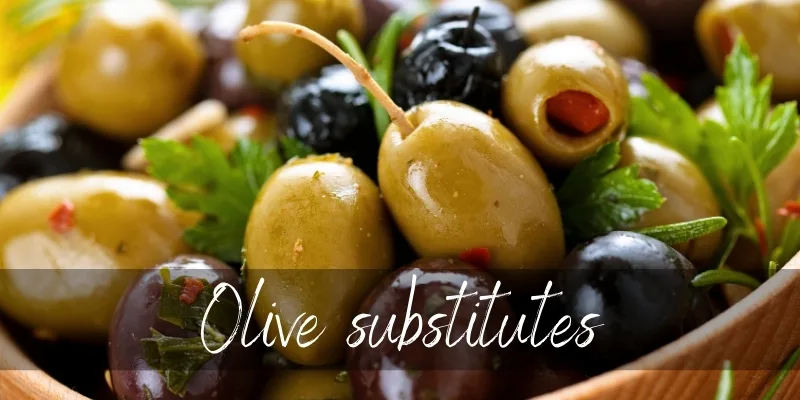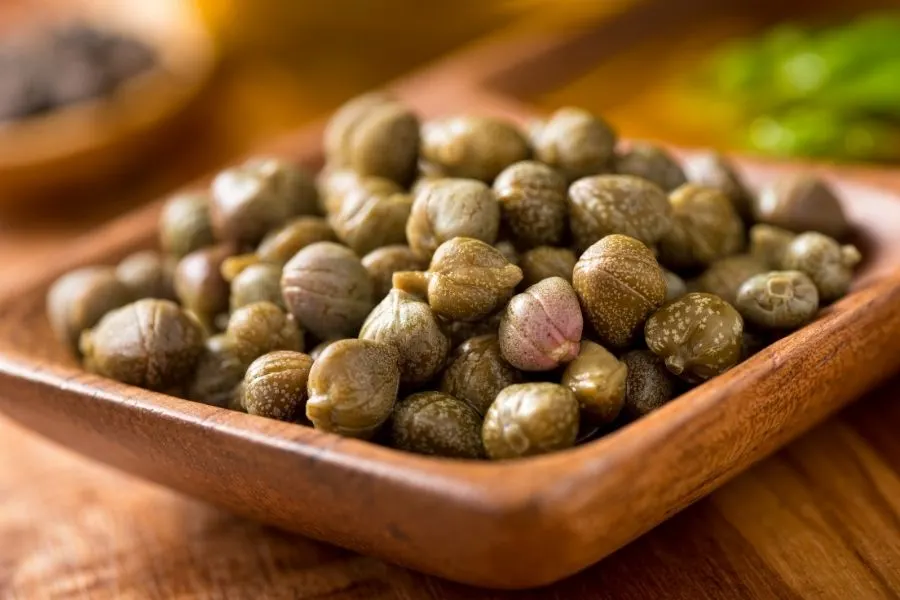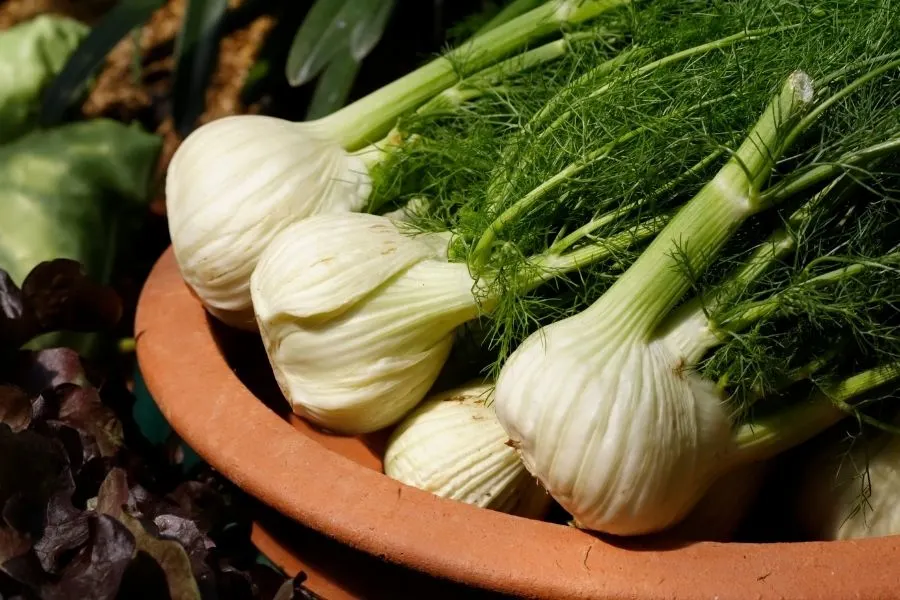Does your new favorite recipe call for olives but you just can’t stand them ? Or maybe you absolutely love them but can’t find any right now ? There are substitutes for both sides of the camp, both for olive lovers and haters.
Some of these will have more in common with olives, specifically green and kalamata olives, while some will be on the mellow side. You can always mix and match these substitutes to reach the flavor you’re looking for.

Best olive substitutes
The best substitutes for olives is a mix of capers, artichoke hearts, a tiny bit of anchovy, fennel, mushrooms, and salty vinegar. You can mix and match any of these substitutes to get the flavor you’re looking for.
Green and kalamata olives have a distinctly earthy, salty, acidic flavor that also has a meaty note to it. Kalamatas have a much saltier and more acidic flavor, while green ones can have a slightly bitter aftertaste. Most of the above ingredients, when combined, will emulate the same sort of flavor, without being olives.
So let’s take a look at each substitute, and see how to use each.
Read also: What Goes With Olives ?
Capers are the closest to green olives
If you’re looking for something as close as possible to green olives, try capers. They’re brined the same way and will definitely get you a similar flavor. Now, if you just can’t stand olives at all, then capers might not be your friend. Do give them a try, since it might be something in olives that capers don’t have !

You can always just add some caper brine or juice to the dish, instead of the actual capers. And if you’re looking for a switch for the classic Martini olive, capers will do nicely.
Artichoke hearts are earthy, meaty, slightly bitter
Now let’s get to composing the green olive flavor with a few ingredients. Artichokes are great for this, as they’re earthy, slightly bitter, and provide a nice meaty texture and some umami on the side.
We’re not sure what it is about artichoke hearts that works so great, but it absolutely does. All it’s missing is some acidity and salt and boom, fake olives ! These work great as substitutes for black olives too, not just green olives.
The tiniest amount of anchovies
You may be wondering why anchovies are on this list. Well, they’re salty, meaty, and if used very sparingly will instantly make any dish or sauce that much more flavorful. We’re aware not everyone’s into anchovies, and that’s fine. All we’re saying is that adding a bit of anchovy to the ingredient mix is a nice touch.
Fennel rounds out the flavor
Fennel – not cumin seeds – has a flavor vaguely like artichoke but may also remind you or star anise, but in a herby way. You don’t need the actual plant, you can just use the seeds. Just be careful to use a small amount of seeds, otherwise the mix will resemble curry powder more than olives.

Mushrooms for meatiness
Let’s take a look at texture for a bit. If artichokes aren’t your thing, or you want to add even more texture to a dish, then mushrooms will help. Which you use depends on what you have available, but even a plain button mushroom will help.
They’re particularly good if you’re looking to replace black olives. Most mushrooms, when cooked, darken a lot, so if chopped roughly they can resemble black olives at a glance. You will need to add less acidity and saltiness in this scenario, since black olives are so mild.
Lemon juice and salt for acidity
And finally, we reach the salt and acid. Most folks recommend vinegar and salt, but if you’re like a flavor less vinegar-y then try lemon juice. The trouble with vinegar is that it gets too fruity, almost sweet. It’s miles away from the brine used for olives, so lemon juice provide more of a neutral flavor.
How, you ask ? Well there’s just some fruits that lend their fruity notes to everything, and apples are just that. You’re likely in possession if a nice bottle of apple cider vinegar, as it’s the most common. If you have wine vinegar that might work a bit better.
And remember to add salt, and taste. If it’s all too strong add a splash of water.
Try black olives
Life is much easier when you don’t have to stray too far form what you’re substituting. So if the main problem is the lack of green or kalamata olives, then try black olives.
They’re milder, and for olive haters they might work a little better, depending on what the problem is.
Or try olives in oil
Another option would be to try olives preserved in oil. They’re still brined and treated to be edible, but after treatment they’re placed in oil. The thing about oil and fats is that they’re exceptionally good at sanding off rough edges. So maybe some bitterness of flavor you find in brined olives will be muted in oil preserved olives.
A nice upside is that very often these olives come with various seasonings. Our favorites are the garlic and Italian herb mix, with basil and oregano and a bit of rosemary.
Read Also: Should Olives Be Refrigerated ?
Olives taste that way to be edible
Now let’s clear up a few things. Olives are the way they are because they need to be brined and treated, in order to be edible. For some reason, fresh raw olives aren’t any good. They’re just like green tomatoes. Way too bitter and astringent to really eat, but once you pickle them, oh boy!
The same applies to olives. Fresh, untreated olives contain oleuropein, a bitter compound that’s highest in in green, immature olives. There’s two main ways of handling this, with lye or with brine, and the pickling.
Lye usually results in a shorter fermentation period, and a softer olive. Brining takes several months, and produced a harder, sturdier olive. Salt-cured olives don’t go through a fermentation period, but green and kalmata ones do.
So this might be what is upsetting the olive haters, in which case we’re guessing pickles aren’t their favorite food either. Not necessarily the vinegar pickles, but the brined ones.
But now you know, whether you love or hate olives, how and what to replace olives with. As you can see, you have a limited resource list if you’re looking to fix a martini. If you’re looking to cook then you’re definitely in luck !

